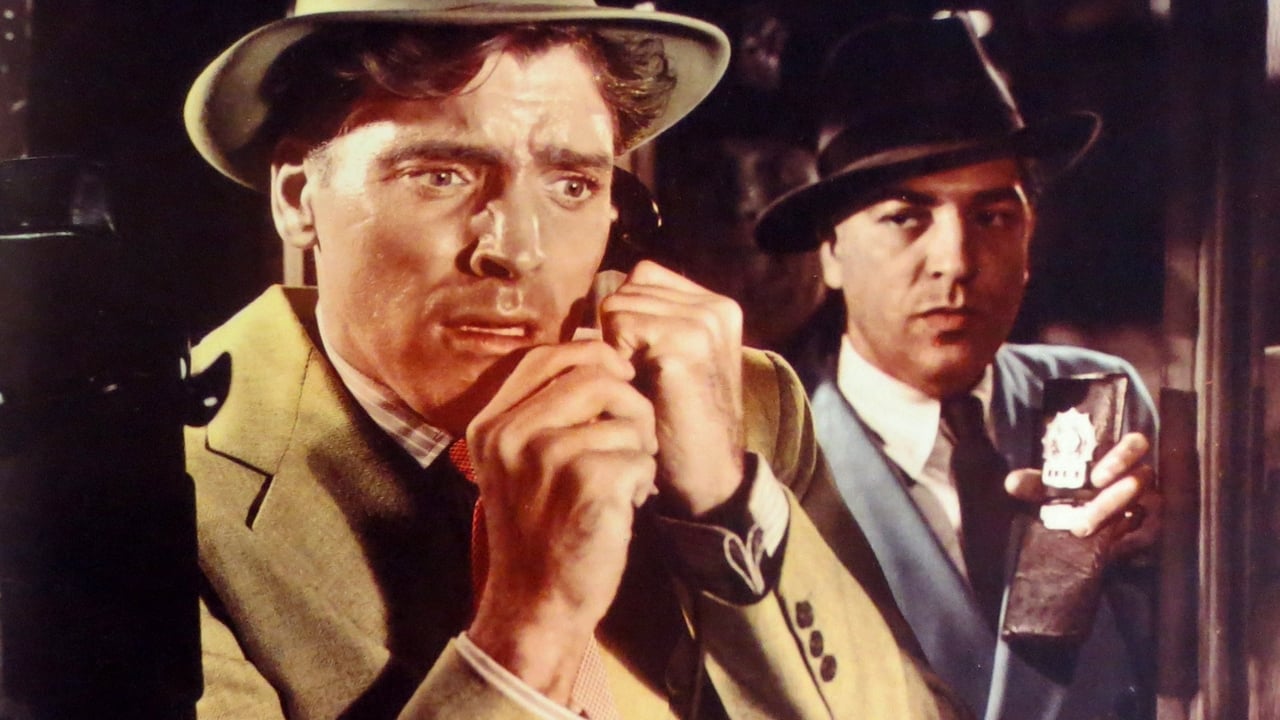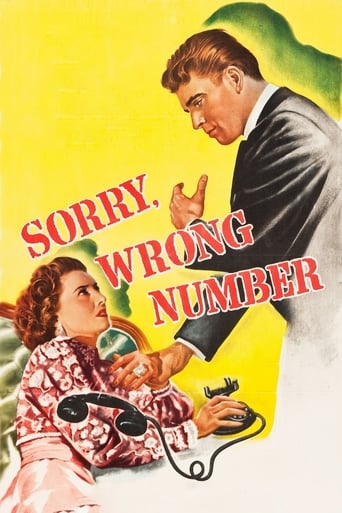

One of Barbara Stanwyck's finest performances as invalid Leona Stevenson, who by chance overhears a hitman and his client over a crossed line while trying to contact her husband (Burt Lancaster). A woman is about to be killed somewhere in the vast city outside her stately dwelling and bedridden Leona has a devil of a time phoning around for anyone who will take her seriously.So sets the scene of Anatole Litvak's stylish film noir, based on the highly acclaimed play by Lucille Fletcher. The Stevenson's courtship and now shaky marriage is conveyed via a series of flashbacks involving use of the telephone itself. Gripping stuff.
... View MoreWhen I watched this movie as a child, it absolutely terrified me! When asked what the scariest film I'd ever seen was, 'Sorry, Wrong Number' was always at the top of my list. How I wish I didn't watch it again as an adult, because unlike other classics that have held up over the years ('The Godfather', 'Psycho', 'The Graduate'), this one sadly didn't.It stars Barbara Stanwyck as a woman who suffers from Hypochondria due to a mental impairment, and her husband Burt Lancaster ~ a man who works for Stanwyck's father. Having been mistreated and abused for years in his position, Lancaster decides his only way out of the marriage is by having Stanwyck killed. Stanwyck accidentally overhears a murder plot in a mis-transfered phone call, and starts realizing she is the intended target. When Lancaster starts having regrets and attempts to warn his wife of what will be occurring, it is obviously too late ~ when the killer answers the phone the final time and says, 'sorry, wrong number'. I'm sure it was absolutely terrifying in its day...and definitely was to a ten year old child! But the years have unfortunately diminished that fright factor.
... View MoreA wonderfully suspenseful movie. A hypochondriac woman lies in bed. Upon making a phone call, she inadvertently overhears a couple men planning a murder. She knows the time it will be committed. She does what she can but with so little information, the police can do nothing. She keeps making calls. Soon we are in flashback mode as she searches her brain for any inkling of what is going on with her husband who should have been back by this time. It's a matter of trying to figure out who the victim is going to be. We have the advantage of knowing the possibilities. Things get more intense as the time approaches. A real spellbinder for the ages.
... View MoreHeck of a thriller, though the narrative is difficult to piece together at times. Stanwyck gets to run through a gamut of hysterical emotions as the intended victim. Her Leona is not particularly likable as the rich man's daughter who gets her way by bullying people around her. So there's some rough justice in her predicament—alone, disabled and dependent on the phone while a killer seemingly stalks her. Even the independent working-man, a studly Henry (Lancaster), is bullied into taking up with her. Of course, it doesn't hurt that she's got scads of money to assist her schemes. Incidentally, catch how Henry's several capitulations to others (Leona, Morano) are marked by allowing them to light his cigarette. Nice touch.The idea of only gradually revealing why Leona is being set up for murder is a good one. It adds to the suspense—not just a 'when' but also a 'why'. The trouble is the disclosure is only revealed in pieces over the phone using flashbacks, and these are hard to piece together over a stretch of time. But enough comes through that we get the idea. There's some great noir photography from Sol Polito that really adds to the tense atmosphere. Anyhow, it's a great premise that also played well over the radio that I recall as a kid. It's also a subtle irony that one could end up being so alone in the middle of a great city. Poor Leona, maybe if she had been a little nicer and less bossy over the phone, she might have made the human connection she needed.
... View More